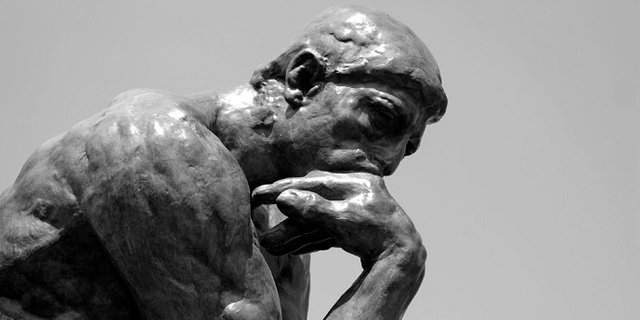Fear - Adler, Freud, Libeck, Berdjaev /part 5/
Every living being is born with a sense of security and insecurity. The more perceptible his sensitivity is, the more it is the change. In this nature lies the emergence of fear and fright, influenced by how individual judges the situation. Our whole life flows between these two feelings (security / insecurity). If the latter prevails, life becomes a suffering. Disturbing the sense of security may be without a clear reason - the occurrence of chronic fear. Depending on the balance of the two feelings, one can be insecure, melancholic or cowardly.
The insecure type has an increased sensitivity that determines its uncertainty. As a result, he is mentally rich, but modest and unobtrusive. Conscientious, honest and conservative, but not by conviction, but because of uncertainty. Near him is the depressing melancholy type. Its sensitivity is exacerbated, resulting in swelling and irritability. Ever thoughtful and fearful, he is ironic, pesimistic, sad. For him, the past is irrelevant, and the future is dubious. He can not find the joy of life. Talented but uncertain and fearful.
The fearful type is characterized by doubt, eternal thought, painful conscience, and indecision. He is not shy, but he is afraid of the future, of what is to come, even from feeling good! According to Macedonian, fear is bodily (corporeal / organ), born of bodily feelings and psychic, which is caused by much higher and more complex prerequisites. According to him, both species have a body base, the remainder of the development of the mental part of the nervous system. The body perceives irritation and, through an increased excitement, prepares for defense. This is more important than mental fear, in which we have no real threat. In this connection, we are talking about organ fear - related to the vital organs like heart, brain, lung. The heart as the organ of fear (most developed heartbeat fear 50-60 years).
Every sensation begins as bodily and ends like a soul. Fear is by nature bodily, and fear has an object in the outside world. The heart, because of its sensitivity, is perceived as the place of the soul. Depending on the importance of the organ, the influence on the psyche is different. An important body - great panic. The higher the nature, the greater the pain (Hegel). He also considers hypochondriac fear. He is constantly suspicious of bodily and other irritation. It can manifest itself as fear for one's own body, fear for the neighbor, fear for material condition, fear for the social part, conscience and religious fear.

Thanks for the briefing
You are welcome :)
This post has received a 4.92 % upvote from @boomerang.
To listen to the audio version of this article click on the play image.

Brought to you by @tts. If you find it useful please consider upvoting this reply.